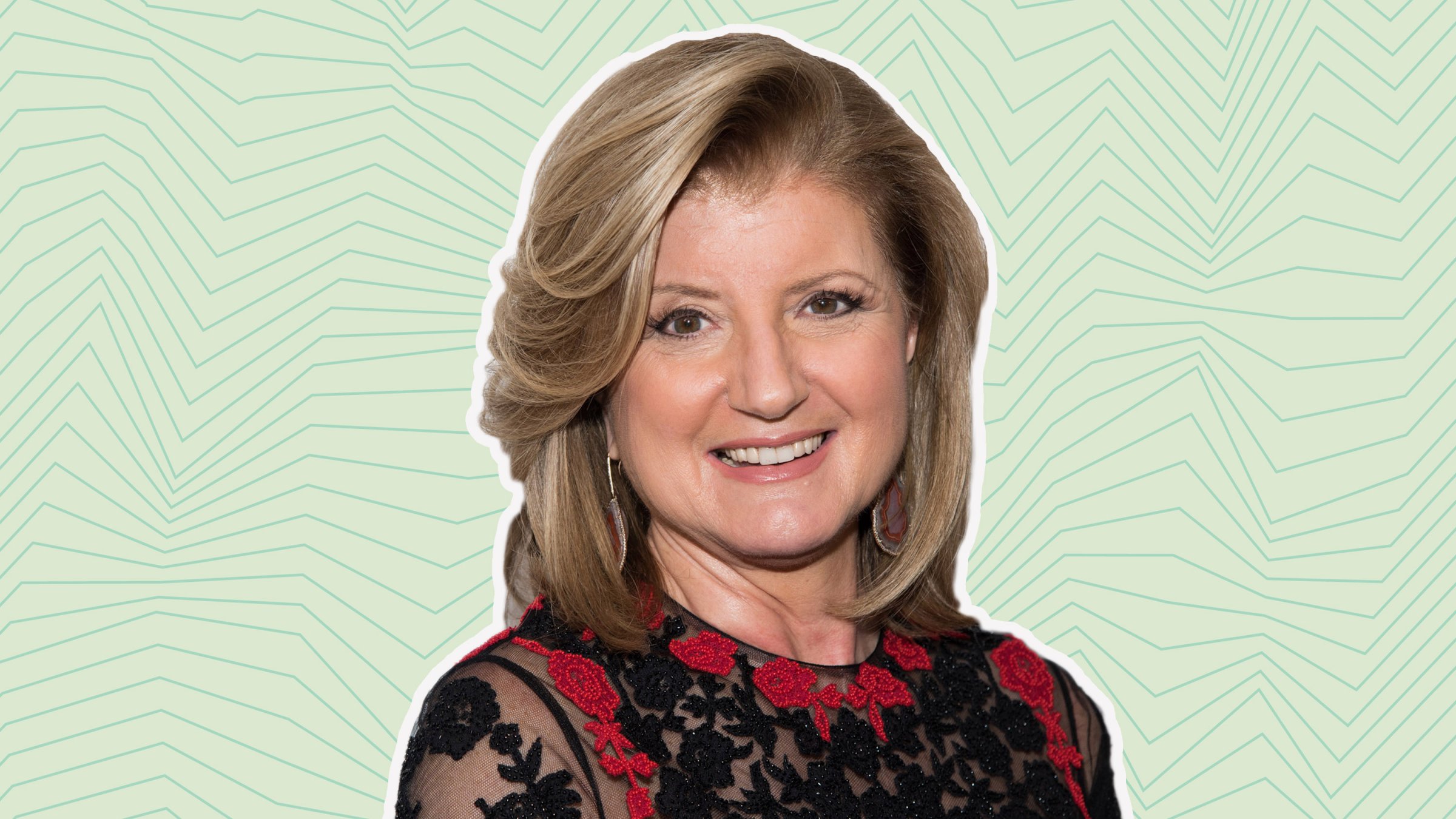
For many years, I subscribed to a very flawed definition of success, buying into our collective delusion that burnout is the necessary price we must pay. Then, in 2007, I had a painful wake-up call: I fainted from sleep deprivation and exhaustion, hit my head on my desk and broke my cheekbone.
I wrote about this experience in my last book, Thrive, and as I went around the world talking about the book, I found that the subject people wanted to discuss most—by far—was sleep: How difficult it is to get enough, how there are simply not enough hours in the day, how tough it is to wind down, how hard it is to fall asleep and stay asleep, even when we set aside enough time. And since I made my own transformation into a sleep evangelist, everywhere I go, someone will pull me aside and, often in hushed and conspiratorial tones, confess, “I’m just not getting enough sleep. I’m exhausted all the time.” Or, as one young woman told me after a talk in San Francisco, “I don’t remember the last time I wasn’t tired.”
By the end of an evening, no matter where I am in the world or what the theme of the event is, I’ll have had that same conversation with any number of people in the room. And what everyone wants to know is, “What should I do to get more and better sleep?” I decided I wanted to take a fuller look at the subject because it’s clear that if we’re going to truly thrive, we must begin with sleep. It’s the gateway through which a life of wellbeing must travel.
I’m living proof that, once we change our minds about sleep, we can begin to change our habits. My bedtime varies from night to night, but after many years of burning the candle at both ends, these days, 95% of the time I get eight hours of sleep a night. Now, instead of waking up to the sense that I have to trudge through activities, I wake up feeling joyful about the day’s possibilities. And I’m also better able to recognize red flags and rebound from setbacks. It’s like being dialed into a different channel that has less static.
Here are the guidelines that have helped me prioritize sleep.
1. No electronic devices starting 30 minutes before bedtime
Staring at a blue light-radiating device before you go to bed can serve as “an alert stimulus that will frustrate your body’s ability to go to sleep later,” said George Brainard, a circadian-rhythm researcher and neurologist at Thomas Jefferson University in Philadelphia.
Make a point to disconnect from your devices, for the sake of your sleep and your overall wellbeing. I have a specific time at night when I regularly turn off my devices—and gently escort them out of my bedroom.
Read more: Career Advice: 3-Hour Morning Routine for Success
2. Take a hot bath with Epsom salts before bed to help calm your mind and body
I treat my transition to sleep as a sacrosanct ritual, and my bath is the centerpiece. I keep a candle flickering nearby—and I prolong my bath if I’m feeling anxious or worried about something.
3. Change into pajamas, a nightdress or even a special T-shirt
Something switches in our brains when we put pajamas on. Slipping them on is a signal to our bodies: Time to shut down. If you wore it to the gym, don’t wear it to bed.
4. Keep your bedroom dark, quiet and cool
As Natalie Dautovich, an environmental scholar at the National Sleep Foundation, said, a small drop in body temperature can prompt sleep signals to our brains: “We know that a cool bedroom environment is key to getting a good night’s sleep. We also know there are a lot of positive associations between fresh air and relaxation, and when we feel relaxed and comfortable in our environment, we’re more likely to feel sleepy.” Aim to keep your bedroom between 60 and 67 degrees.
Read more: Be Productive: How I Became a Morning Person
5. Avoid caffeine after 2 p.m.
Today, caffeine has become a key component of our sleep-deprived culture. But when consumed too late in the day—when we are trying to fight off that afternoon slump—caffeine hinders our ability to fall asleep at night. As a result, we are even more tired the next day. So we reach for another caffeinated drink in an endless sleep-deprived cycle.
I write this as someone who absolutely loves coffee and drinks it every morning (although I try not to drink it after 2 p.m. since this is roughly the time sleep experts recommend we stop consuming caffeinated drinks).
Read more: Navy SEAL: How I Have Productive Mornings
6. Remember, your bed is for sleep and sex only
Also worth mentioning: Getting more sleep can lead to getting more sex, at least for women, according to a 2015 study. Researchers measured the duration of women’s sleep and compared it to their level of sexual desire the next day. They found that every additional hour of sleep brought with it a 14% rise in the likelihood of having some kind of sexual activity with her partner.
Arianna Huffington is the cofounder, president and editor-in-chief of The Huffington Post, as well as author of The Sleep Revolution.
More Must-Reads From TIME
- The 100 Most Influential People of 2024
- The Revolution of Yulia Navalnaya
- 6 Compliments That Land Every Time
- What's the Deal With the Bitcoin Halving?
- If You're Dating Right Now , You're Brave: Column
- The AI That Could Heal a Divided Internet
- Fallout Is a Brilliant Model for the Future of Video Game Adaptations
- Want Weekly Recs on What to Watch, Read, and More? Sign Up for Worth Your Time
Contact us at letters@time.com